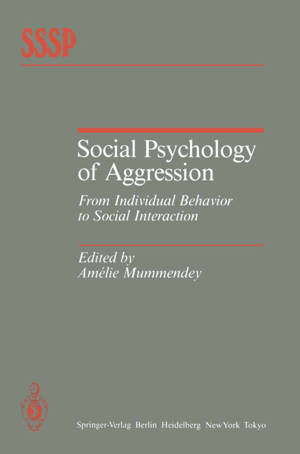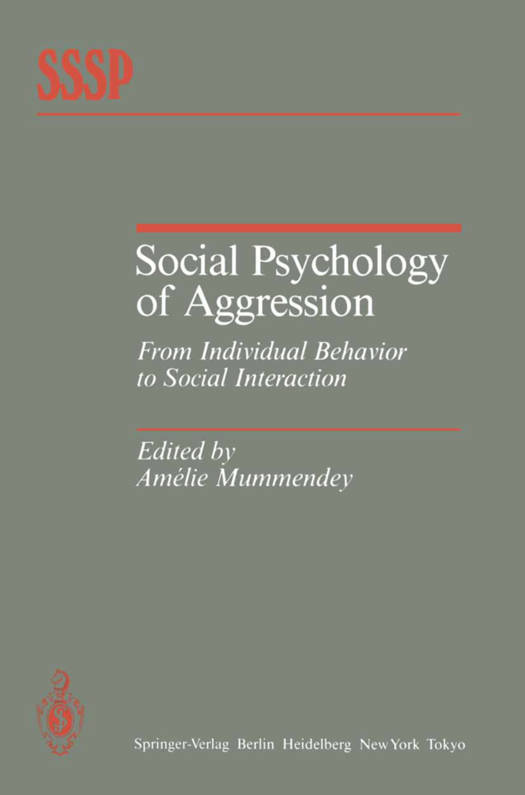
- Afhalen na 1 uur in een winkel met voorraad
- Gratis thuislevering in België vanaf € 30
- Ruim aanbod met 7 miljoen producten
- Afhalen na 1 uur in een winkel met voorraad
- Gratis thuislevering in België vanaf € 30
- Ruim aanbod met 7 miljoen producten
Social Psychology of Aggression
From Individual Behavior to Social Interaction
€ 118,45
+ 236 punten
Omschrijving
Dollard, Doob, Miller, and Mowrer formulated their frustration-aggression hy- pothesis more than forty years ago. Since then the progress in theory of and re- search on aggression has been very slow. Today we know that there are severe li- mitations to their hypothesis. The development of alternative approaches has been restricted by the neglect of sociopsychological concepts. Until a few years ago, social psychology was at the back door of aggression research, and even this superficial acquaintance contained too many cognitive ideas to suit many of the influential heroes of the mainstream of research. There are many reasons for the decline of the old paradigms in aggression re- search, among them the failure to extrapolate from the results of artificial experi- ments to the realities of our time. This book goes much deeper than other texts in the area; it is also a fresh beginning. It endeavors to reformulate the more tradi- tional topics and strongly emphasizes the social framework of aggression. Ac- cordingly, hostile actions must be explained from a sociopsychological perspec- tive. It has remained for Amelie Mummendey to show the way in which European and American research can be effectively integrated in a comprehen- sive reader on aggression.
Specificaties
Betrokkenen
- Uitgeverij:
Inhoud
- Aantal bladzijden:
- 176
- Taal:
- Engels
- Reeks:
Eigenschappen
- Productcode (EAN):
- 9783642489211
- Verschijningsdatum:
- 11/04/2012
- Uitvoering:
- Paperback
- Formaat:
- Trade paperback (VS)
- Afmetingen:
- 156 mm x 234 mm
- Gewicht:
- 276 g

Alleen bij Standaard Boekhandel
+ 236 punten op je klantenkaart van Standaard Boekhandel
Beoordelingen
We publiceren alleen reviews die voldoen aan de voorwaarden voor reviews. Bekijk onze voorwaarden voor reviews.







